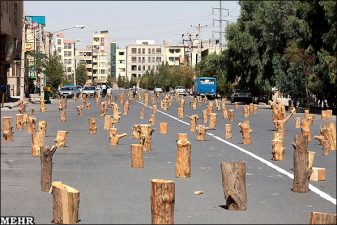 An Israeli architect designed an Olympic stadium that could travel the waterways from country to host country.
An Israeli architect designed an Olympic stadium that could travel the waterways from country to host country.
Every four years a new country has the honor of hosting the Olympic Games – an international event that fosters transboundary competition and good will. But such events also wreak havoc on the environment in which they are staged. Like the soccer world cup which Qatar will host in 2022, hosting the Olympics usually requires an enormous expenditure of building and construction materials (although job creation is always welcome).
Professor Emeritus of Architecture at the Technion Israel Institute of Technology, Michael Burt likens the Olympics to weddings, where substantial money and fuss is invested in something that will essentially never be used again. His solution: floating stadia.
Prof. Burt proposes to build a floating Olympic complex that can be moved from one host country to the next via waterways, whereupon it will be moored at port.
According to Discovery News:
The design calls for a stadium that can hold 150,000 spectators, as well as “modules” that would contain auxiliary sporting facilities, housing accommodations, and offices. The separate modules would be towed in as needed. Once in place, the facilities would form a sturdy archipelago accessible by footbridges. Spectators and athletes could enter from a fixed pier, a pontoon bridge, a ferry, or some combination.
The entire structure would require less than 90 tons of steel to build, significantly less than new buildings every four years, for which there are typically few uses at the end of the Olympic fervor. Plus, it needn’t be restricted to the Olympics use alone. It could be shared on a for-hire basis for other sporting events throughout the year and with sufficient advanced notice it can be spared from natural disasters.
In addition to saving natural resources, this solution would also create a more equitable playing field for poorer countries. At present, nearly 90% of the world lacks the financial resources to bid to host the Olympics, meaning that those countries with less disposable capital also lose the economic boost usually associated with a quick and fast influx of international visitors.
There are challenges. First, who will pay for the construction, and who will take responsibility for its maintenance? Also, as Sean Fireman, assistant professor of political science at Barry University in Florida told Discovery, there is a certain amount of symbolism associated with the Olympics and old stadia that might be hard to give up.
Even so, he said, logistically a reusable stadium makes sense, but Professor Burt admits he doesn’t have the requisite ambition to realize the design that is now several years old. We hope that will soon change.
More on sustainable architecture and development in the Middle East:
The Epitome of Sustainable Architecture: 700-Yr Old Iranian Cave
World Cup 2022: Is Qatar Too Hot To Bid?
Qatar Seeks to Solar Power the 2022 World Cup


